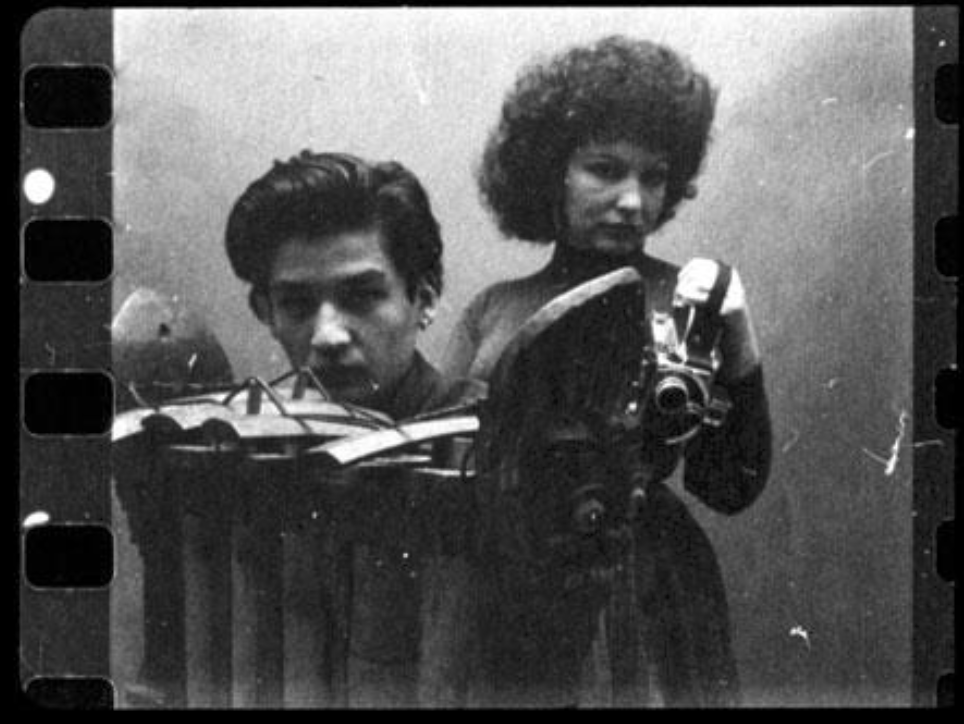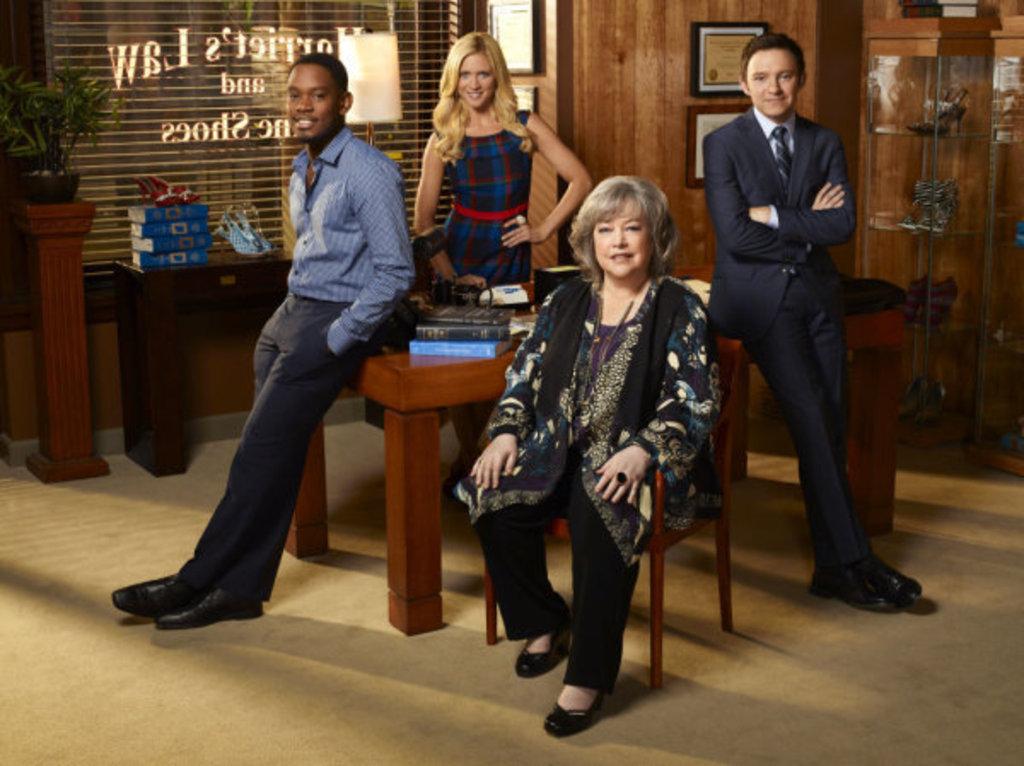-
Harry’s Law
David E. Kelley’s new legal dramedy, Harry’s Law, premiered tonight on NBC. The main character is Harriet Korn, who after years of being a patent attorney, decides it’s boring. She gets fired from her job and then is promptly aerially assaulted by a suicidal man and then hit by a car. After a trip or two to the hospital she decides to open her own law firm in an abandoned shoe store.
It’s hard to judge the show on only the first episode. I liked most of what I saw. Keep in mind that most of Kelley’s series take at least a few episodes to really get going. He’s big on character, which isn’t something you can establish in one episode. I know a lot of people get sick of the “crazy law firm” formula, but the fact of the matter is: it works. Each of his legal shows have their own separate identity and tone. I dare anyone to watch all of Kelley’s television work then tell me he’s not the best thing to happen to television in the last two decades (some series excluded).
-
Thoughts on Kindle & Other “E-Media”
I had debated on getting a Kindle for a while. I love to read, though with school and work I often don’t have too much extra time to read for fun. For whatever reason, I never utilize the library and usually just buy books I’m interested in off of eBay or half.com. I had some reservations about the Kindle. Mainly, I like to be able to put my finger in a book and compare progress made to progress yet-to-make. There’s also the physical presence of a book. I’ll discuss that more in a bit.
At any rate, I asked for and received a Kindle for Christmas. I was about halfway done with my physical copy of The Heart Is A Lonely Hunter, but I said screw it and ordered the Kindle edition so I could check out my new Christmas present. It was weird reading on it for about six pages and then I didn’t even pay any attention to to the fact that I wasn’t reading a physical book. The e-ink screen actually looks like paper and after that very short awkward period I completely fell in love with my Kindle. I’m still figuring everything out, but I like everything about it thus far. -
On Maya Deren
 “I was a poet before I was a filmmaker. And I was a very poor poet because I thought in terms of images, what existed essentially as a visual experience in my mind. Poetry was an effort to put it into verbal terms. When I got a camera in my hand it was like coming home. It was doing what I always wanted to do without the need to translate it into a verbal form”–Maya DerenStan Brakhage once said that Maya Deren was “the mother of us all.” What he meant by this was that Maya was a significant influence to all experimental films and filmmakers that came after her. The purpose of this paper is to find out exactly what Brakhage meant; just how big of an impact did Deren have on the experimental film scene? The first part of this paper will be a biography and analysis of Deren and her work. The second part will compare and contrast Deren’s aesthetics to experimental films that came after her in hopes of finding out exactly what Brakhage meant.Maya Deren was actually born Elenora Derenkowsky.[1] She was born in Kiev, Ukraine, on April 24th, 1917. Her parents were both educated: her mother was a musician and her father was a psychiatrist. They moved to New York in 1922 due to the rise of anti-Semitism in Europe during this time. Her family took the last name “Deren,” which was the Americanization of Derenkowsky.Elenora had a hard time adjusting to a new language and culture, as would anyone at age five. When she grew up, she studied journalism and political science at Syracuse University. Deren become interested in filmmaking, dancing, poetry, and Socialism. After marrying Gregory Bardacke, she received her BA from New York University and went on to graduate from Smith College with a master’s degree in English. Upon graduation Deren began working as a secretary for Katherine Dunham, who was an anthropologist as well as a choreographer. Gregory and her were divorced in 1939. While working on a production for Dunham’s company Deren met a Czech filmmaker, Alexander Hammid. They married and according to Hammid, it was he who suggested that she changed her name to Maya; Maya was the name of the Mayan goddess of water. In 1943 Deren and Hammid began working on a film that would launch Maya’s filmmaking career.Meshes of the Afternoon beings with an arm dropping a single flower on the ground. A woman follows a hooded figure with a mirror-face. She drops a key, which later turns into a knife. She goes to her bedroom and watches herself follow the figure and enter the house. She interacts with several other versions of herself and she even tries to kill one. Reflections. Mirrors shatter. The ocean.
“I was a poet before I was a filmmaker. And I was a very poor poet because I thought in terms of images, what existed essentially as a visual experience in my mind. Poetry was an effort to put it into verbal terms. When I got a camera in my hand it was like coming home. It was doing what I always wanted to do without the need to translate it into a verbal form”–Maya DerenStan Brakhage once said that Maya Deren was “the mother of us all.” What he meant by this was that Maya was a significant influence to all experimental films and filmmakers that came after her. The purpose of this paper is to find out exactly what Brakhage meant; just how big of an impact did Deren have on the experimental film scene? The first part of this paper will be a biography and analysis of Deren and her work. The second part will compare and contrast Deren’s aesthetics to experimental films that came after her in hopes of finding out exactly what Brakhage meant.Maya Deren was actually born Elenora Derenkowsky.[1] She was born in Kiev, Ukraine, on April 24th, 1917. Her parents were both educated: her mother was a musician and her father was a psychiatrist. They moved to New York in 1922 due to the rise of anti-Semitism in Europe during this time. Her family took the last name “Deren,” which was the Americanization of Derenkowsky.Elenora had a hard time adjusting to a new language and culture, as would anyone at age five. When she grew up, she studied journalism and political science at Syracuse University. Deren become interested in filmmaking, dancing, poetry, and Socialism. After marrying Gregory Bardacke, she received her BA from New York University and went on to graduate from Smith College with a master’s degree in English. Upon graduation Deren began working as a secretary for Katherine Dunham, who was an anthropologist as well as a choreographer. Gregory and her were divorced in 1939. While working on a production for Dunham’s company Deren met a Czech filmmaker, Alexander Hammid. They married and according to Hammid, it was he who suggested that she changed her name to Maya; Maya was the name of the Mayan goddess of water. In 1943 Deren and Hammid began working on a film that would launch Maya’s filmmaking career.Meshes of the Afternoon beings with an arm dropping a single flower on the ground. A woman follows a hooded figure with a mirror-face. She drops a key, which later turns into a knife. She goes to her bedroom and watches herself follow the figure and enter the house. She interacts with several other versions of herself and she even tries to kill one. Reflections. Mirrors shatter. The ocean.

